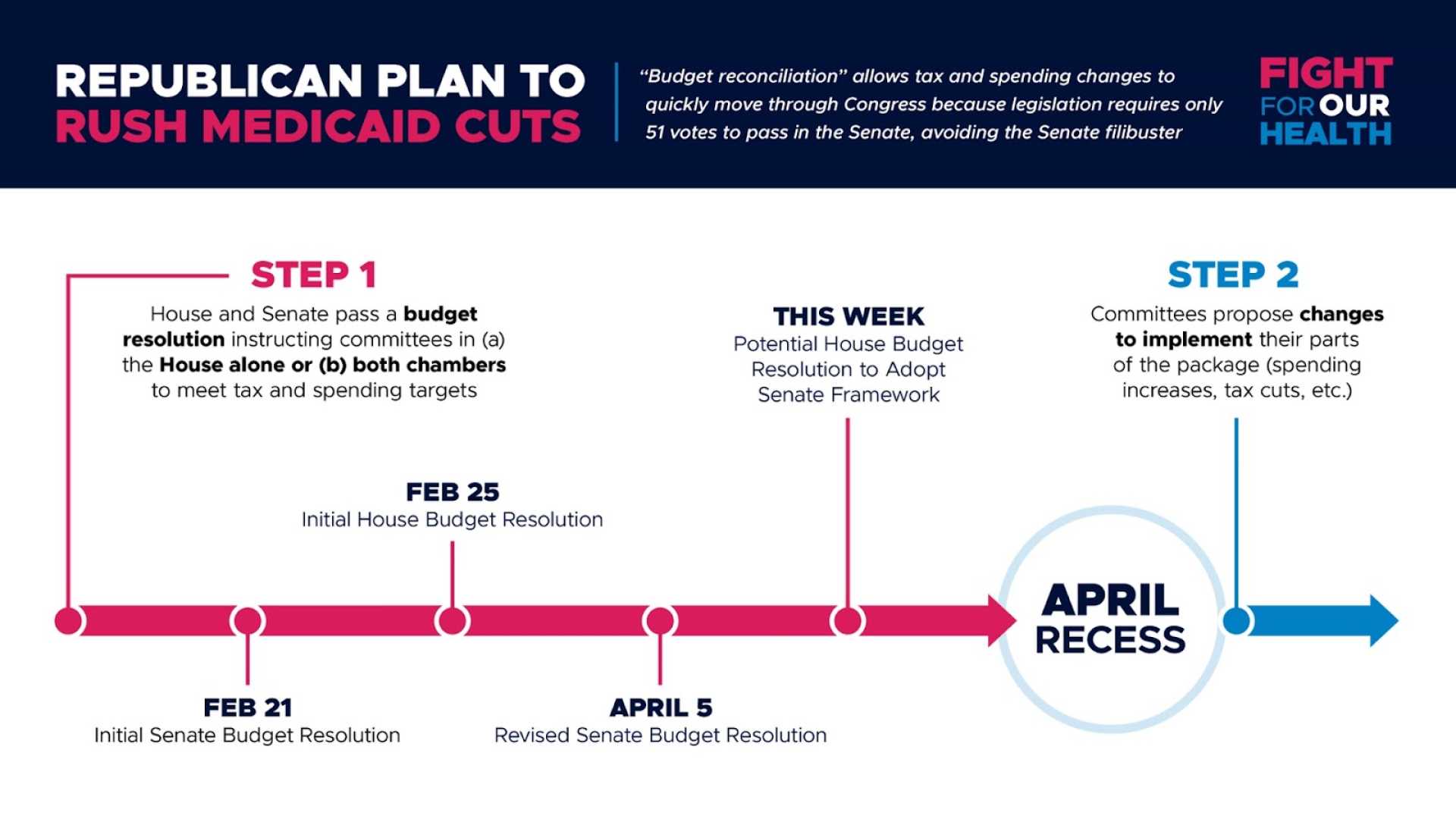Politics
Major Medicaid Cuts Proposed in Republican Budget Raise Concerns

CRESTWOOD, Mo. — Proposed cuts to Medicaid in the Republican budget resolution for Fiscal Year 2025 alarm many Missourians and health advocates. Late Sunday, the House Committee on Energy and Commerce released details of the budget plan, which includes $880 billion in cuts to Medicaid over the next decade.
The budget aims to reduce projected spending by targeting wasteful practices, while projecting that up to 8.6 million people could lose health insurance by 2034. Congressman Brett Guthrie (R-Ky.), chairman of the committee, called it a “common sense reconciliation bill,” asserting the need for reforms to strengthen Medicaid.
However, dissent from within the GOP is growing. Some Republicans, especially those representing swing districts, fear that drastic cuts could alienate voters. Senator Josh Hawley (R-Mo.) expressed his concerns, emphasizing that proposed measures could leave a significant number without coverage, a situation reminiscent of harsh cuts Missouri experienced in 2005.
Under the new budget, the proposed changes include enforcing work requirements for able-bodied adults, citizenship checks, and prohibiting Medicaid from covering gender reassignment surgeries. These proposals have sparked fears about reduced access to critical health services for vulnerable populations.
Energy and Commerce Committee Ranking Member Frank Pallone (D-N.J.) criticized the cuts, asserting that they would fundamentally take health care away from millions, labeling them as “cutting to the bone.” The Partnership for Medicaid also raised concerns about the implications of these cuts, warning of increased numbers of uninsured individuals.
As Health and Human Services Secretary Xavier Becerra stated, cuts of this scale could worsen the living conditions for low-income families who rely on Medicaid. “We’re talking about lives here,” he said in a recent interview.
In Missouri, advocates like Amy Blouin, president of the Missouri Budget Project, predict dire outcomes. “We’re looking at a much more significant impact with the loss of federal funds even than what 2005 was,” she said. With Missouri possibly facing a loss of $2 billion a year in federal funding, the fallout could extend to education and other crucial services.
Community members, like Sandra Smith, an advocate for her disabled daughter, echo these fears. “I really don’t know what I would do if we lost the Medicaid home care. It is not sustainable for anyone to do infinite 24-hour care,” she said.
While Republicans aim to pass the budget resolution by Memorial Day, public opinion appears to be leaning against major Medicaid cuts, with polls showing over 76% of residents opposing such measures.
As negotiations continue, both sides of the aisle are bracing for the implications that these proposed Medicaid cuts may bring.












